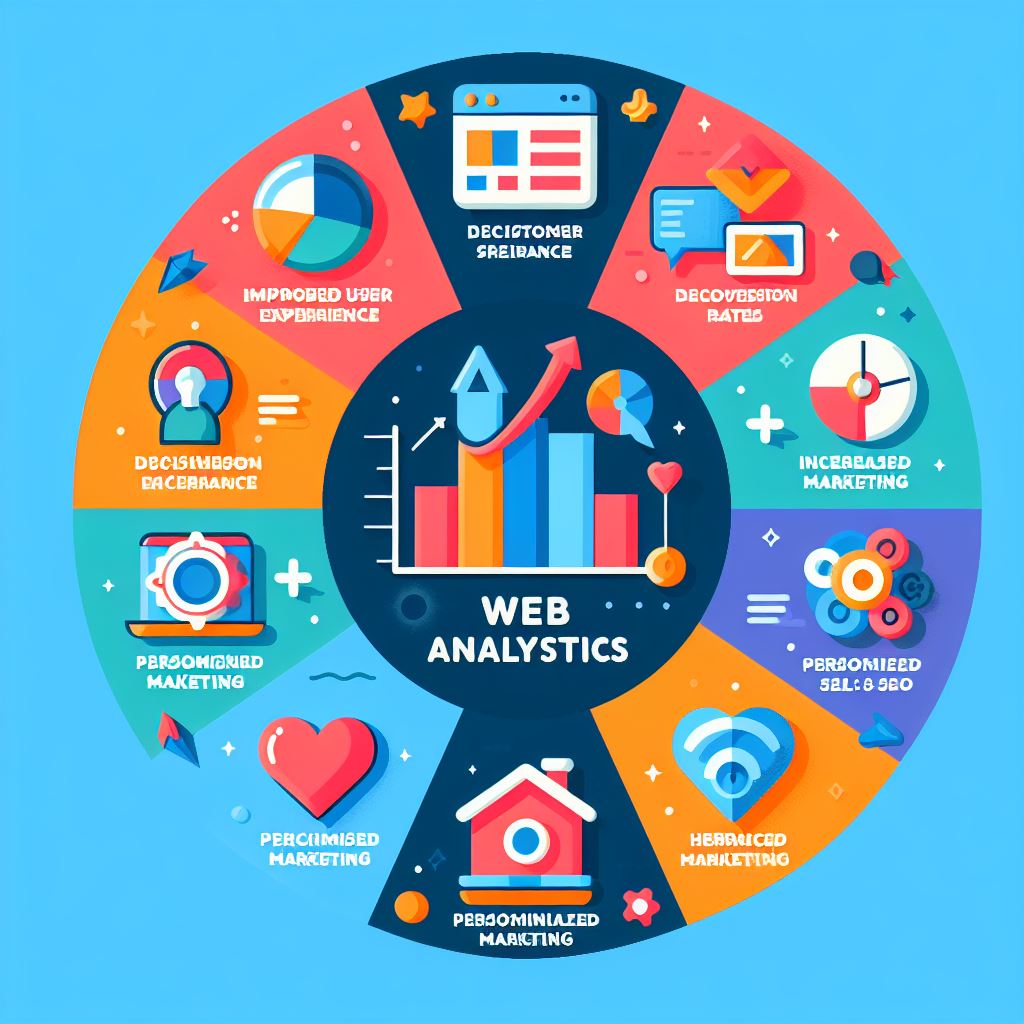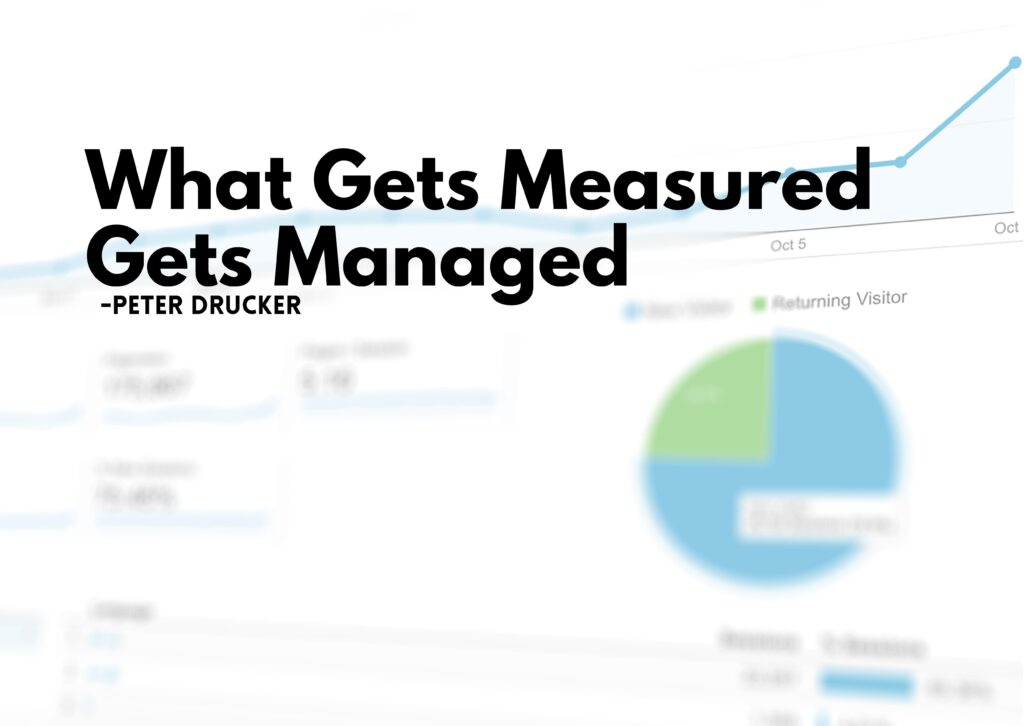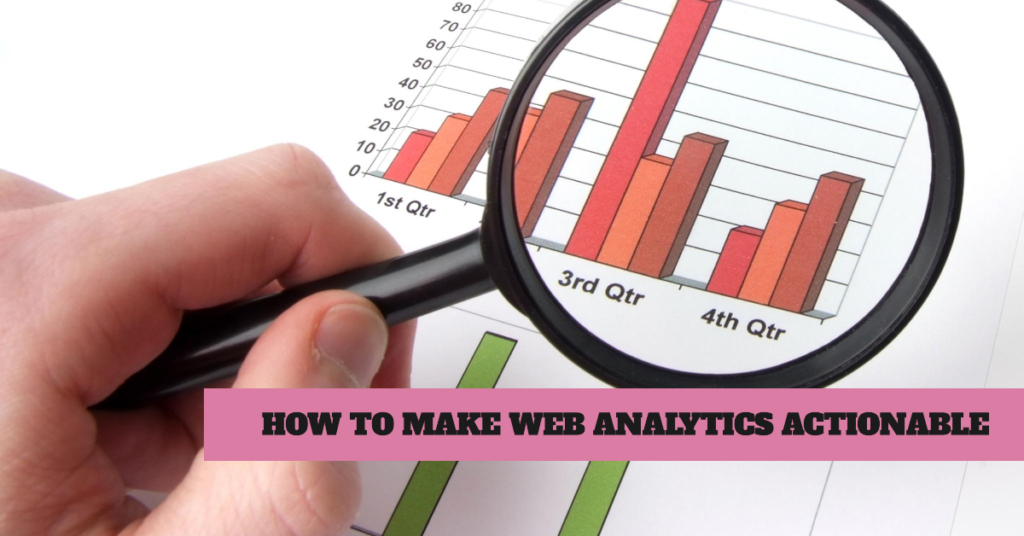Suppose you have a report on how your business performed previously; will it be helpful? Yes, this will help you as you can predict and make better decisions based on the audience’s needs. That’s why whether you have an online or offline business, analytics should be your best friend because it is a core part of every business, which needs to be considered to get an actionable result.
Gathering analytics and stats for your business in this digital era is much easier now. So, in this today’s guide, we will talk about how you can get maximum benefit using web analytics.
So, without further ado, let’s get into it.

What is Web Analytics?
In general, analytics is the process of compiling, processing, presenting, and analyzing a business’s performance to get some stats on how it is performing.
- So the same goes for web analytics which means a collection of analysis, reports, and web data to optimize web pages. It means someone visits the site; the owner will get to know where you come from and where you are interacting with their site, even without any effort.
Yes, it’s easy to get web analytics, but before incorporating it, you should get to know some benefits of using stats.
Understanding Web analytics?
Well, if you are a beginner, this term (web analytics) might confuse you, which is why it’s good to have some understanding of it before we jump into the benefits of web analytics on your website.
Undoubtedly, website analytics is a great way for any type of website to start getting analytics for free, all you need to do is integrate your site with Google Analytics, and you are good to go.
There are lots of features available in it, some of which are
- Page views
- Visits
- Average Visits and Duration
- Most frequently visited pages
All these analytics in a single space is a great opportunity, and you probably don’t want to miss it; of course, yes, which is why you are here.
Top Web Analytics Tools
After understanding web analytics we need some tools which will help us in our analysis process to make our actionable decisions. Here’s a list of popular web analytics tools, categorized by their strengths.
Free and Powerful:
- Google Analytics
For In-Depth User Behavior Analysis:
- Hotjar
For Conversion Optimization:
- Crazy Egg
For Enterprise-Level Needs:
- Adobe Analytics
For Privacy-Focused Analytics:
- Matomo (formerly Piwik)
Top 7 Benefits of Using Web Analytics
There are many benefits of using website analytics that can open up the new world around you, which you probably never knew before. So, let’s find out a few of them together.

1- Analyze the traffic
With the help of website analytics, you can easily find out how much traffic you are getting each day and how much time they have spent on your site. This will help you make decisions based on the analytics or make it much better and more productive.
Web analytics also shows the number of visitors you are getting and the source of it. Either you are getting it via emails, search engines or social media.
You can also track the organic or paid traffic and decide where to invest your time and money. Moreover, having an idea of how much traffic you have will help you figure out how many potential customers you still need to include.

2- Know the visitors
One of the enormous benefits of integrating web analytics is that you can easily find where the user comes from. This will ultimately help you to determine what would be the best area to invest your budget – a helpful marketing technique.
For any website owner, the most important questions are how many users he has. Where they come from and how much time they spend on his site. The answer to all of these concerns is made possible by analytics, where all the data, traffic, and conversions are integrated so that you can easily find your answers.
3- Know the customer’s needs
Your produced content is only useful if you focus on creating it while knowing where the user primarily interacts and what they want. And the web analytics help you find the answer to updating your previous pages or creating new ones similar to prior search intent.
The website color scheme, design, layout, speed, and everything else contribute a lot to meeting the customer’s needs. Otherwise, the chances of bouncing back are higher, which means you are not delivering what they were expecting. A higher bounce rate means a user couldn’t find the answer to what he was looking for, so he just bounced back (or left the site).

4- Know your target market
While creating a content strategy, the biggest concern for any content marketer is the target market. Web analytics provides the benefit of knowing where your user is coming from. This helps a market understand the target market so that it can create a website content plan depending on the user’s interests, needs, and demographics.
Once you understand your customer’s target market and needs, you will be able to generate better results. You can keep the content for what they are looking for. You can use a medium that attracts them most by creating marketing campaigns. It could be an email, a blog post, a newsletter, or anything, but knowing these would help you to generate better ROI.
5- Track the conversion rates
The performance of any site is calculated by the number of conversions it gets. In this regard, tracking your business goals will help you evaluate your business’s weaknesses or strengths. However, too many goals can create complexity, but a clear evaluation and tracking could save you from this hassle. Web analytics gives you a chance and benefit to do it more conveniently.
Which thing you consider as a conversion depends on you. Your purpose is to persuade your audience to share your post or to download a specific file. When they are done with it, your conversion will be counted. With the help of analytics, you can easily track whether your purpose is fulfilled. If yes, then how many conversions do you get?

6- Check the Performance of Marketing Campaigns
A marketing campaign is an effective but costly way to engage with your audience. Suppose you run a marketing campaign and want to know how it’s performing; how will you know? Yes, you will use web analytics to track the performance of that paid campaign.
Your campaign may not get successful, and in that case, website analytics would help you to understand the facts and figures so that you could improve your performance next time. Ultimately, how many users that particular campaign achieved, how many clicks he got, and how the user interacted will help you generate better ROI.
Moreover, you can easily find out the best and least performing campaigns to decide better where you should invest and where you should not.
7- SEO Performance

Search engine optimization is the best way to increase organic traffic, and having analytics will help you to keep your SEO performance on track. For example, what would you do next if you just saw that most searches are on mobile? You will optimize your site according to mobile users on a priority basis. However, how would you get to know this; of course, using web analytics.
So, web analytics provides the benefit of easily tracking your SEO performance to optimize your site by solving user problems.

How Can a Business Benefit From Using Analytics on Their Website?
For any site owner, the most valuable questions are. No doubt, Google analytic is a valuable tool to optimize your site performance and to know
- How are the users interacting with your site?
- Do they like the content you produce or not?
- Which areas/pages do they like the most?
- And what should be changed in your place?
The answer to all these questions will ultimately help you deliver what they want and reduce the bounce rate. So, how you would get to know the answer of all these concerns; of course that would be a point where you can grab the ultimate benefit from web analytics.
Good to know: If you have a website You should go for a Plugin powered by Google named Google Site Kit in this kit every basic service related to the website is available under a single program.
How to Make Web Analytics Actionable?
After getting the analytics information, what will you do next? First, you will try to overcome those flaws, which was your ultimate purpose.

You might get confused about how to convert these stats into actionable results, Right? That’s why here we have a short guide or simple steps for it, whether you have online or offline data analytics.
- First of all, you need to know the ultimate purpose of your state and what outcome you want to generate – like finding out your ultimate desire.
- After that, you need to maintain those analytics in an organized way. Most of the time, companies and organizations gather their analytics information but don’t consider how important it is to retain it because it would be a mess without proper maintenance.
- Then it’s time to convert them into a model you ultimately want. Well, this step will need some time, budget, and effort because this would be the point where you will transform your data into an actionable point.
That’s it, these simple steps will help you to generate your desired results out of your web data.
Wrapping Up the Benefits of Using Web Analytics:
To wrap up this whole discussion, we must say keeping an eye on your web analytics is a key part of any website so that you would be able to optimize your site according to your visitors. Last but not least your tons of produced content is useless if you don’t know what your reader would love to read.
So, get the analytics for your website or blog and start generating the outcome of it.
Team Tipsoont wishes you a great analytic journey ahead. For any query, knock out our Contact Us page we would love to answer.
You May Love
Yoast VS Rank Math | Key Comparison with Features
Revolutionize Your Blog with AI in WordPress: Tips and Tricks
Stay Connected.







